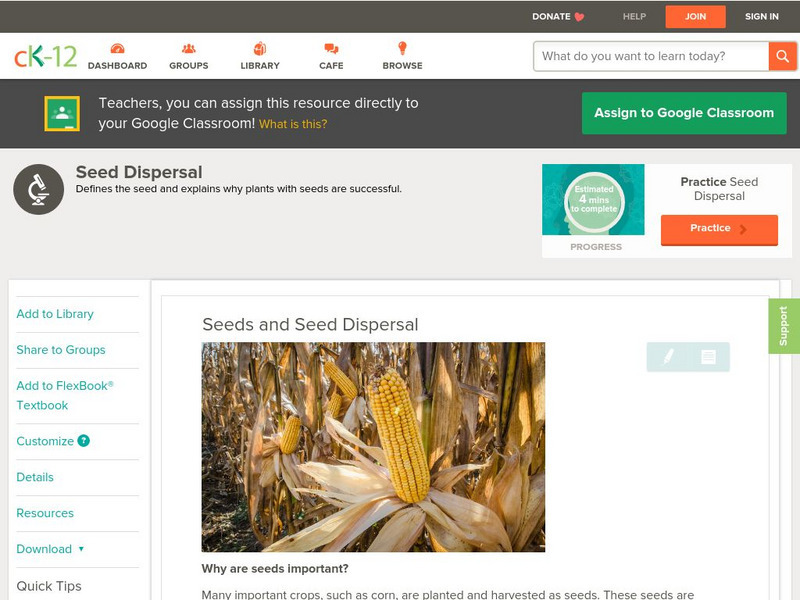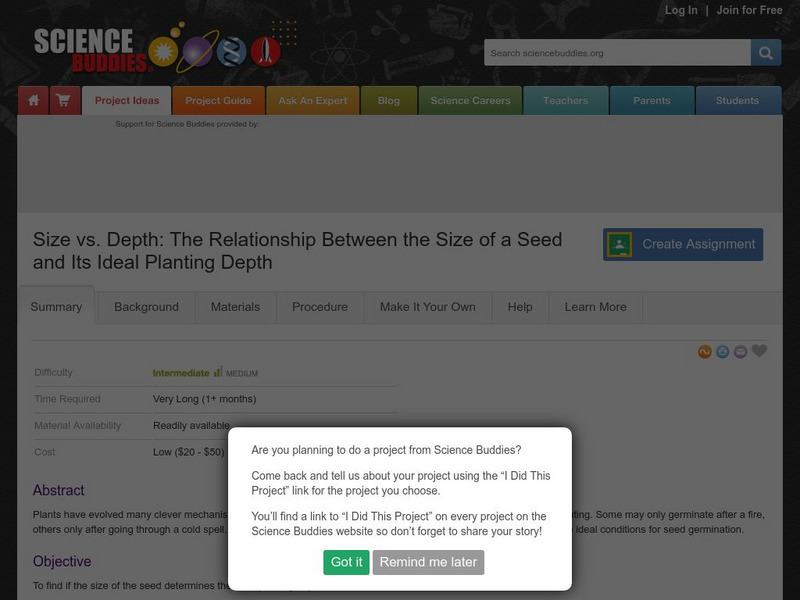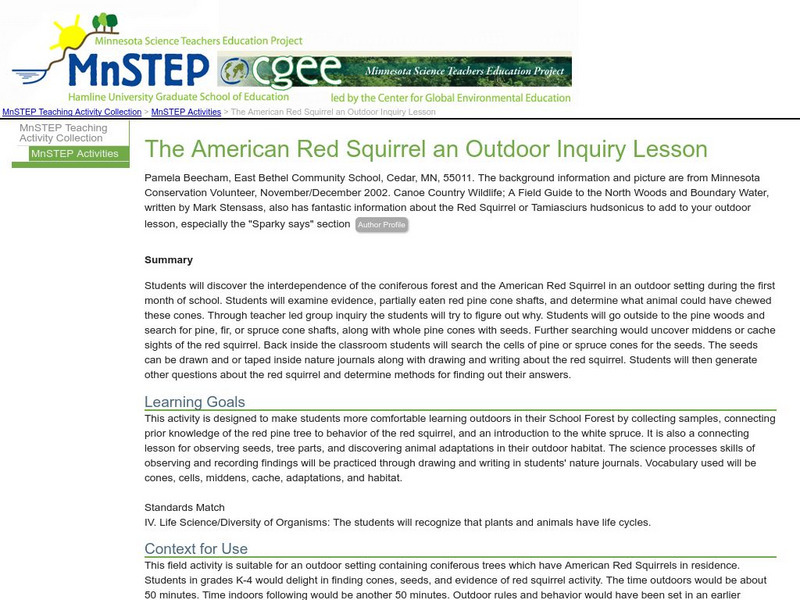Utah Education Network
Uen: Seed House
Young scholars will communicate in oral, artistic, written and nonverbal form as they study seeds and their growth. Students will plant seeds, make observations about the seeds' growth, and report their observations to peers .
Unite for Literacy
Unite for Literacy: Plants and Food: Dandelion Days
Read about the life cycle of dandelions from their first appearance in the spring. Includes audio narration in 16 additional languages with text in English.
CK-12 Foundation
Ck 12: Life Science: Seeds and Seed Dispersal
[Free Registration/Login may be required to access all resource tools.] Plants seem to grow wherever they can. How? Plants can't move on their own. So how does a plant start growing in a new area? Learn more about seeds and seed...
CK-12 Foundation
Ck 12: Life Science: Vascular Seedless Plants
[Free Registration/Login may be required to access all resource tools.] Vascular seedless plants have vascular tissue but do not have seeds. Most of the large vascular seedless plants from ancient times are now extinct, but their smaller...
Science Buddies
Science Buddies: Planting Size vs. Depth
Plants have evolved many clever mechanisms to ensure that their seeds will wait for appropriate conditions before sprouting. Some may only germinate after a fire, others only after going through a cold spell. This project explores one...
Science Education Resource Center at Carleton College
Serc: Investigating an Inquiry Approach to Germination Growth in Plants
In this lab, students investigate the effects of a variable on the germination of a small plant. They will compare the growth of their variable to a control then write a lab report to report their findings.
Science Education Resource Center at Carleton College
Serc: Mn Step: Seeds to Plants: How to Grow a Plant
An experiment where first-graders plant seeds and monitor their growth. Prior to planting, they decide on an inquiry question, and how they will find out the answer through the experiment.
Texas A&M University
Tamu: Aggie Horticulture: School Gardens
Teachers and students interested in finding information on how to start a garden in their school will find this site very helpful. This site, sponsored by the Department of Horticulture Sciences at Texas A&M University, includes a...
Curated OER
Conifers Use Cones and Seeds Since Flowering Plants Had Not Appeared.
This engaging article on gymnosperms offers good descriptions and background on these seed bearing plants. Learn about their characteristics and what makes these plants different from angiosperms.
Other
Perspective: The Plant Kingdom
Did you know their are about 270,000 plant species? This webpage investigates the phyla of the plant kingdom. Learn how plants are classified based on their tissue structure, seed structure, and stature. Each division is described with...
Science Education Resource Center at Carleton College
Serc: Mn Step: The American Red Squirrel an Outdoor Inquiry Lesson
For this activity, young scholars are presented with red pine cones that have been partly eaten by the American Red Squirrel, a fact that is not divulged to them at this stage. After a discussion of the possibilities, the class takes a...
Other
Ontario Council for Technology Education: Model Greenhouse Construction [Pdf]
Students will design and construct a scale model of a greenhouse using the design process. Each student designs and builds a device that will act as a greenhouse in which to propagate plants from seed, that allows for easy access, and...
Curated OER
You Will Find Cycad Cones Growing in the Center of the Plant.
This engaging article on gymnosperms offers good descriptions and background on these seed bearing plants. Learn about their characteristics and what makes these plants different from angiosperms.
Curated OER
Ginkgo Leaves Look Like Needles That Have Grown Together.
This engaging article on gymnosperms offers good descriptions and background on these seed bearing plants. Learn about their characteristics and what makes these plants different from angiosperms.










